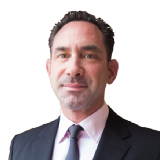OXON HILL, MD. – At the end of the 11th round, Buddy McGirt told his fighter, “I’m going to stop it, Max.”
Maxim Dadashev, 28, is from St. Petersburg, Russia. He was 281-20 as an amateur, undefeated in 13 professional fights, and the IBF’s third ranked junior welterweight. He aspired to be both an American and a champion, and often spoke of the day, in the not too distant future, when he would take his wife and son to Miami, or maybe Hawaii, a place where they could lie in the sun.
“Max, you’re getting hit too much.”
Dadashev shook his head, no.
“Please Max, please,” said McGirt a former welterweight champion recently inducted into the International Boxing Hall of Fame. “Let me do this. Ok?”
The fighter blinked. His chest heaved. But he said nothing.
“Ok? Look at me. Please.”
Dadashev shook his head, even fainter than the first time.
“If I don’t, the referee’s gonna do it.”
You could all but see Dadashev considering his options. Still, Dadashev had nothing for his trainer. It’s not that he couldn’t hear him. Or that he didn’t understand. This was a willful act, perhaps the most willful of all.
“C’mon, Max,” said McGirt. “Please.“
Finally, McGirt did what his fighter would not: surrender.
“That’s it, doc,” he told the ringside physician. Then he turned to the ref, Kenny Chevalier. “That’s it.”
Subriel Matias, the winner, fell to his knees, elated. As a child in Maternillo, Puerto Rico, Matias had been bullied on account of his dark skin. In 2012, he was shot in the back and legs, then did federal time on conspiracy drug charges. “I wouldn’t snitch,” he said. But Friday night, Matias found himself 14-0, all by stoppage, and on course for a title shot. “I’m the pride of my neighborhood,” he would declare.
Three minutes had passed since McGirt’s surrender. Dadashev remained on his stool as the decision was announced, the ringside physician still in his corner. There were cuts on his eyes, and his left flank – where he recently had the image of a gladiator tattooed to his belly – reddened by Matias’ incessant pounding. He wasn’t gruesome, at least not by boxing standards. Just a portrait of defeat.
There hadn’t been a moment during the fight to jump up in protest, no sequence that called out for a stoppage. Dadashev kept boxing, kept fighting back. But he kept weakening, too. The latter rounds saw Matias cut off not just the ring, but with it, Dadashev’s hope. The attack was relentless, constricting, inevitable. Dadashev took 319 shots, 260 of them power punches.
Dadashev tried, but couldn’t exit the ring on his own power. First, he sat on the steps to the ring apron to gather himself. Then, while being escorted to the dressing room, with the doctor holding his right shoulder – approximately eight minutes after McGirt called it off – he could no longer support himself.
The doctor called for the gurney. As he was placed on the gurney, Dadashev began to vomit – first in a towel, then a red bucket.
According to reports, he lost consciousness in the ambulance on the way to UM Prince George’s Hospital Center. There, he underwent a two-hour procedure to relieve a subdural hematoma, commonly known a brain bleed. A portion of his skull was removed to relieve pressure on the brain; he was placed in a medically induced coma.
If his condition remains critical, then so do his dreams. Dadashev is another renowned former amateur from eastern Europe who came to California to join the stable of Egis Klimas. Klimas himself arrived from Lithuania in 1989 with $42. Now he’s a globe-trotting manager with a gym full of champions in the coastal town of Oxnard, among them: light heavyweights Oleksandr Gvozdyk and Sergey Kovalev, and perhaps the best fighter in the world, lightweight Vasiliy Lomachenko.
Dadashev wanted what they have – not just titles, but a green card. Then again, in a country that celebrates victory as virtue, winning a title seemed a failsafe way to gain one’s citizenship.
“He studies his English so hard,” Klimas said Friday afternoon.
With his wife, Elizabeth, and his two-year-old son, Daniel, in St. Petersburg, Dadashev lived mostly in Oxnard, California in a house that Egis maintains for his up and coming fighters. Unlike the others, though, he didn’t party or go on sight-seeing ventures. He rarely leaves his room. He watches fights on YouTube. He watches American movies: Scarface, The Godfather, and his favorite, Jumanji. They were a great help in learning English, he said last October.
With a full beard, he looked like his moniker, “Mad Max.” A couple months ago, he had his belly tattooed with the images of Zeus and the Gladiator. “Zeus can do anything,” he said. “And the gladiator can fight.”
But on Thursday, as he came to the fighter meetings almost clean-shaven, Dadashev seemed different, with soft-features and a slender neck. He said he was reading children’s books to help him with his English. He was also playing chess “for mental improvement.”
“After this fight, I will send my documents for the green card,” he said.
His wife would be joining him after the fight.
He still had the dream. Sunbathing.
In Miami. Or Hawaii.

